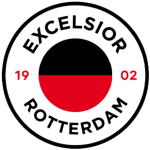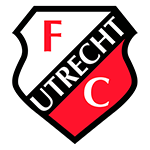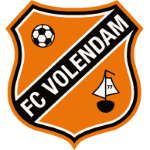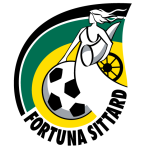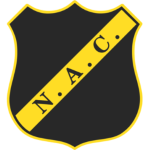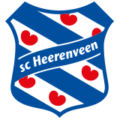Dutch Football Teams: Complete Guide to Eredivisie, Eerste Divisie & Eredivisie Vrouwen Teams (2025)
Football in the Netherlands is more than just a sport - it’s something deeply rooted in their national identity. Over the years, the country has been regarded as one of the footballing powerhouses in the world. The country has produced some of the finest talents in football and has consistently participated on the international stage. The Men’s National Team has made it to the World Cup finals thrice and won the UEFA Euro in 1988, while the Women’s National Team has won the UEFA Euro 2017 and made it to the World Cup final in 2019. The country is also renowned worldwide for its “Total Football” philosophy, pioneered by tactical geniuses like Johan Cruyff, which emphasizes positional flexibility, fluidity, and technical brilliance.
This style has not only influenced the Dutch football teams, but also clubs and manager philosophies worldwide. Domestically, the Men’s top divisions - Eredivisie and Eerste Divisie, and the Women’s top division - Eredivisie Vrouwen serve as the engine of Dutch football. These leagues play a crucial role in developing young talents and new tactical minds, which helps to maintain the Netherlands position as a footballing powerhouse.
Netherlands Football Clubs: History and Evolution of Football Teams in Netherlands
Football in the Netherlands mainly started in the late 19th century, deeply influenced by the British, as they promoted the sport in the country through Dutch schools and universities. The first official Netherlands football clubs were formed during this period. In 1889, the Royal Dutch Football Association (KNVB) was established, making it one of the oldest football governing bodies in the world. KNVB played a crucial role in developing a proper league structure and in promoting a national footballing identity. As football grew in popularity, club football began to gain its hold. By the mid-20th century, clubs like Ajax, PSV, and Feyenoord rose to prominence, making their mark in domestic and global competitions. Ajax, in particular, became the country’s football ambassador, largely attributed to its golden era in the 1970s.
It was during this period that the “Total Football” philosophy emerged, which was adopted by various football teams in the Netherlands. Its focus on fluid movement, high pressing, tactical flexibility, and technical brilliance not only revolutionised Dutch football but also influenced the coaching approach of modern managers like Pep Guardiola. The Netherlands commitment to developing youth academies and football intelligence has helped to keep the Dutch at football forefront.
Dutch Football League System
The Dutch football league system follows a structured hierarchical system that blends professional football with amateur levels. At the top sits the Eredivisie, the premier football division of the Netherlands. It consists of 18 teams, where each team competes for domestic glory and international qualifications. Below the Eredivisie is the Eerste Divisie, also known commercially as the Keuken Kampioen Divisie. This is the second tier, and it serves as a development hub for both ambitious players and clubs. Below the Eerste Divisie is the Tweede Divisie, the third tier in Dutch football, and is also the top level of Dutch amateur football, although it includes some semi-professional clubs.
This is followed by the Derde Divisie and various other regional leagues. The Dutch football league follows a system of promotion and relegation, where clubs are promoted/relegated directly or through playoffs. The Royal Dutch Football Association (KNVB) oversees the entire league system, ensuring fair play, youth development, and the smooth functioning of the league system. The structure ensures competitiveness, as it allows smaller clubs to rise through the leagues, while also preserving the high standards of Dutch football.
Dutch Football Pyramid
The Dutch football pyramid consists of various leagues through which clubs move up or down based on their performances. At the top of the pyramid sits the Eredivisie. Established in 1956, the league consists of 18 teams competing for domestic glory. Below the Eredivisie comes the Eerste Divisie, the second tier of Dutch football. It is followed by the Tweede Divisie, which serves as the link between professional and amateur football. Below it come the various amateur leagues like the Derde Divisie and other regional leagues. Dutch football follows the European-style football pyramid, where teams are relegated or promoted. Top finishing teams get promoted, whereas the lower finishing teams get relegated, directly or via a playoff. KNVB oversees the entire football pyramid, ensuring fairness and competitiveness.
Most Successful Dutch Football Teams
The Netherlands is home to some of the most historic clubs in the world -teams with consistent domestic and international success. Dutch football has been built on its “Total Football” approach, which undoubtedly contributes as a major reason for the success of their top clubs. Dutch football clubs like Ajax, Feyenoord, and PSV Eindhoven have not only dominated the domestic landscape but have also achieved glory on the European stage - winning the UEFA Champions League, Europa League, and Super Cups. Other than these giants, clubs such as AZ Alkmaar, FC Utrecht, and SC Heerenveen have also enjoyed domestic league and cup successes. These clubs have played key roles in player development and in shaping Dutch football as a dominant world force. Let’s dive into the top 10 most successful football clubs in the Netherlands based on their trophy cabinet:
| Club | Founding Year | No. of Trophies |
|---|---|---|
| HVV Den Haag | 1865 | 11 |
| Koninklijke HFC | 1879 | 6 |
| RAP (Amsterdam) | 1887 | 6 |
| Sparta Rotterdam | 1888 | 9 |
| Ajax | 1900 | 75 |
| Go Ahead Eagles | 1902 | 5 |
| Feyenoord Rotterdam | 1908 | 36 |
| PSV Eindhoven | 1913 | 52 |
| FC Twente | 1965 | 7 |
| AZ Alkmaar | 1967 | 7 |
Eredivisie Teams
The Eredivisie is the highest professional football league in the Netherlands. Since its inception in 1956, the league has been serving as the premier football division of the Netherlands. Comprising 18 clubs, the league operates based on the system of promotion and relegation, with the lower finishing teams being relegated to Eerste Divisie, the second tier of Dutch football. Each season, teams compete for the national title and qualification spots in European competitions such as the UEFA Champions League, Europa League, and Conference League.
Clubs like Ajax, PSV, and Feyenoord have not only dominated the league historically, but have also brought European success to Dutch football. Beyond the titles, Eredivisie teams are well respected for their world-class youth academies and strong tactical foundations, making the league a vital force in both Dutch and global football. Let’s take a look at the 2025-26 Eredivisie teams:
| Club | Founding Year | City | Stadium |
|---|---|---|---|
| Sparta Rotterdam | 1888 | Rotterdam | Spartastadion Het Kasteel |
| Ajax | 1900 | Amsterdam | Johan Cruyff Arena |
| NEC | 1900 | Nijmegen | Goffertstadion |
| Excelsior | 1902 | Rotterdam | Van Donge & De Roo Stadion |
| Go Ahead Eagles | 1902 | Deventer | De Adelaarshorst |
| Heracles Almelo | 1903 | Almelo | Asito Stadion |
| Feyenoord | 1908 | Rotterdam | De Kuip |
| PEC Zwolle | 1910 | Zwolle | MAC³PARK Stadion |
| NAC Breda | 1912 | Breda | Rat Verlegh Stadion |
| PSV Eindhoven | 1913 | Eindhoven | Philips Stadion |
| Heerenveen | 1920 | Heerenveen | Abe Lenstra Stadion |
| Volendam | 1920 | Volendam | Kras Stadion |
| Telstar | 1963 | Velsen | BUKO Stadion |
| Twente | 1965 | Enschede | De Grolsch Veste |
| AZ | 1967 | Alkmaar | AFAS Stadion |
| Fortuna Sittard | 1968 | Sittard | Fortuna Sittard Stadion |
| Utrecht | 1970 | Utrecht | Stadion Galgenwaard |
| Groningen | 1971 | Groningen | Euroborg |
Eerste Divisie Teams
The Eerste Divisie functions as the second tier of Dutch football, sitting just below the Eredivisie in the league hierarchy. Also known by its commercial name, the Keuken Kampioen Divisie, it features 20 clubs competing for promotion to the Eredivisie. The team that finishes 1st and 2nd are automatically promoted, while lower finishing Eredivisie and other Eerste Divisie teams enter a promotion/relegation play-off, which is decided through various rounds based on periods.
This competitive structure allows ambitious clubs to rise to the top, while also maintaining strong professionalism across both leagues. The Eerste Divisie plays a crucial role in player development and serves as a growth hub for young Dutch talent, contributing significantly to the country’s football identity. Let’s take a look at the 2025-26 Eerste Divisie teams:
| Club | Founding Year | City | Venue |
|---|---|---|---|
| Vitesse Arnhem | 1892 | Arnhem | GelreDome |
| Willem II Tilburg | 1896 | Tilburg | Koning Willem II Stadion |
| Ajax U21 (Ajax II) | 1900 | Amsterdam | Sportpark De Toekomst |
| MVV Maastricht | 1902 | Maastricht | Stadion De Geusselt |
| VVV Venlo | 1903 | Venlo | Covebo Stadion – De Koel |
| FC Eindhoven | 1909 | Eindhoven | Jan Louwers Stadion |
| ADO Den Haag | 1905 | The Hague | Bingoal Stadion |
| FC Emmen | 1925 | Emmen | De Oude Meerdijk |
| TOP Oss | 1928 | Oss | Frans Heesen Stadion |
| RKC Waalwijk | 1940 | Waalwijk | Mandemakers Stadion |
| De Graafschap | 1954 | Doetinchem | Stadion De Vijverberg |
| Roda JC Kerkrade | 1962 | Kerkrade | Parkstad Limburg Stadion |
| SC Cambuur | 1964 | Leeuwarden | Cambuur Stadion |
| FC Den Bosch | 1965 | ’s-Hertogenbosch | Stadion De Vliert |
| AZ Alkmaar U21 | 1967 | Alkmaar | AFAS Trainings Complex |
| Helmond Sport | 1967 | Helmond | GS Staalwerken Stadion |
| FC Dordrecht | 1883 | Dordrecht | Stadion Krommedijk |
| Almere City FC | 2001 | Almere | Yanmar Stadion |
Eredivisie Vrouwen Teams
The Eredivisie Vrouwen is the highest-level women’s football league in the Netherlands. Launched in 2007 by the Royal Dutch Football Association (KNVB), the league aims to promote women's football in the country. It features the best women’s clubs in the country competing for the national title and qualification to European competitions such as the UEFA Women’s Champions League. Eredivisie Vrouwen teams like Ajax, Feyenoord, and FC Twente are some teams in the division. Since its inception, the Eredivisie Vrouwen has played a crucial role in developing elite female players. The league has significantly raised the profile of women’s football in the Netherlands, contributing to the national team’s success on the international stage, with the team winning UEFA Euro 2017 and making it to the World Cup final in 2019. Here is a list of the 2025-26 Eredivisie Vrouwen teams:
| Club | Founding Year | City | Stadium(s) |
|---|---|---|---|
| ADO Den Haag | 2007 | The Hague | Bingoal Stadium |
| Ajax | 2012 | Amsterdam | Sportpark De Toekomst, Johan Cruijff Arena |
| AZ | 2022 | Alkmaar | AFAS Training Complex, AFAS Stadium |
| Excelsior | 2018 | Rotterdam | Woudestein |
| Feyenoord | 2021 | Rotterdam | Varkenoord, Stadion Feijenoord (De Kuip) |
| sc Heerenveen | 2007 | Heerenveen | Skoatterwâld Sports Park, Abe Lenstra Stadium |
| NAC Breda | 2023 | Breda | Sports Park Witches' Wheel, Rat Verlegh Stadium |
| PEC Zwolle | 2010 | Zwolle | Sports Park Be Quick '28, MAC³PARK Stadion |
| PSV | 2012 | Eindhoven | The Herdgang, Philips Stadion |
| Telstar | 2011 | Ve | - |





